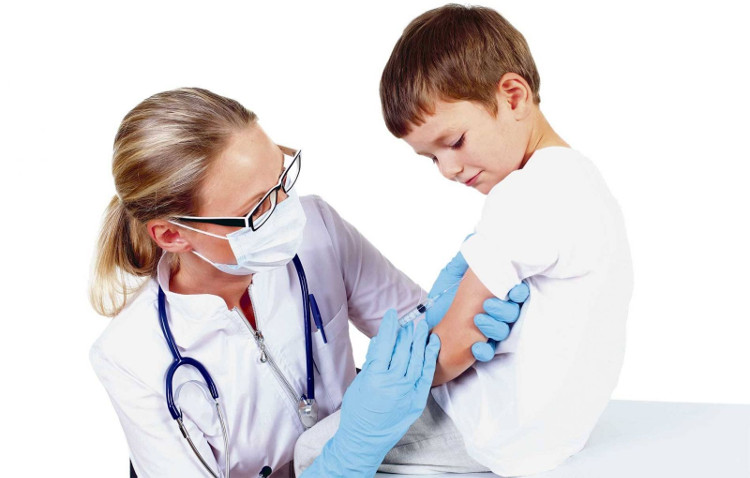7 important vaccines minors should inject
Teenagers should get enough or booster vaccines for hepatitis B, diphtheria - pertussis - tetanus, measles - mumps - rubella .
11-18 is an age sensitive to many infectious diseases. This is also the age when immunity is obtained because the previous expanded immunization program began to decline or significantly reduced, increasing the risk of infection.
Here are the important young vaccines that should be injected according to Vaccine Recommendations for all ages in Vietnam:
The basic vaccination schedule for hepatitis B vaccine should be completed for children who have not been vaccinated or given a booster dose if they have had enough injections according to the basic schedule, as directed by the doctor to prevent infection.

Should complete the basic injection schedule or repeat dose as prescribed.
Measles, mumps, rubella vaccine
Should complete the basic injection schedule or repeat dose as prescribed. The repeat dose may enhance immunity for women when they enter the childbearing age, giving antibodies to their babies. Rubella that occurs during pregnancy, especially during the first trimester, can cause miscarriage or birth defects in the fetus.
Diphtheria, whooping cough, tetanus vaccine
Parents should complete the basic injection schedule or the prescribed repeat dose to prevent immunity caused by the decline in childhood. In addition, the booster dose can enhance the immunity of women when they enter the childbearing age, giving antibodies to babies at birth.
Children need sufficient injections according to the basic schedule or the prescribed repeat dose to prevent disease. In addition, it also works to enhance immunity for women when entering the age of childbirth, and to transmit antibodies to children.
This vaccine includes 3 doses for adolescent and young people (10-25 or 9-26 years). Vaccines for preventing HPV infection cause cervical cancer and HPV-related diseases including genital anal ulcers.
Children should get their seasonal flu vaccine every year before the season to prevent flu from seasonal influenza A and B viruses. This is a very common disease of all ages and can affect the fetus if women become infected. influenza in pregnancy, especially in the first 3 months of pregnancy.
A basic injection schedule or a prescribed booster dose at age 11-12 should be performed if there is a high risk of Meningococus meningococcal bacteria. This is an agent that can cause meningitis, pneumonia, high mortality and often leave many sequelae.
- Do not inject poultry vaccines: How to handle?
- 3 common misunderstandings about vaccines
- Detecting contaminated metals and debris in a series of human vaccines
- Successful development of super vaccines can protect against all types of diseases
- Inject the vaccine with a patch
- How are Pentaxim and Quinvaxem vaccines different?
- Prepare vaccines from green plants, why not?
- The US stopped testing HIV vaccines
- Vietnam vaccines are qualified for world export
- Decode 7 misconceptions people often think about vaccines
- Things to know about 5 in 1 vaccines and 6 in 1 vaccines
- Inject with tape
 Green tea cleans teeth better than mouthwash?
Green tea cleans teeth better than mouthwash? Death kiss: This is why you should not let anyone kiss your baby's lips
Death kiss: This is why you should not let anyone kiss your baby's lips What is salmonellosis?
What is salmonellosis? Caution should be exercised when using aloe vera through eating and drinking
Caution should be exercised when using aloe vera through eating and drinking Gum can be a new weapon against Covid-19
Gum can be a new weapon against Covid-19  What is chloroquine? Usage and dosage
What is chloroquine? Usage and dosage  What is vitamin D? Effect of Vitamin D
What is vitamin D? Effect of Vitamin D  What is acyclovir?
What is acyclovir?  Effects and dosage of Omeprazol 20mg STADA®
Effects and dosage of Omeprazol 20mg STADA®  What is Celecoxib?
What is Celecoxib? 